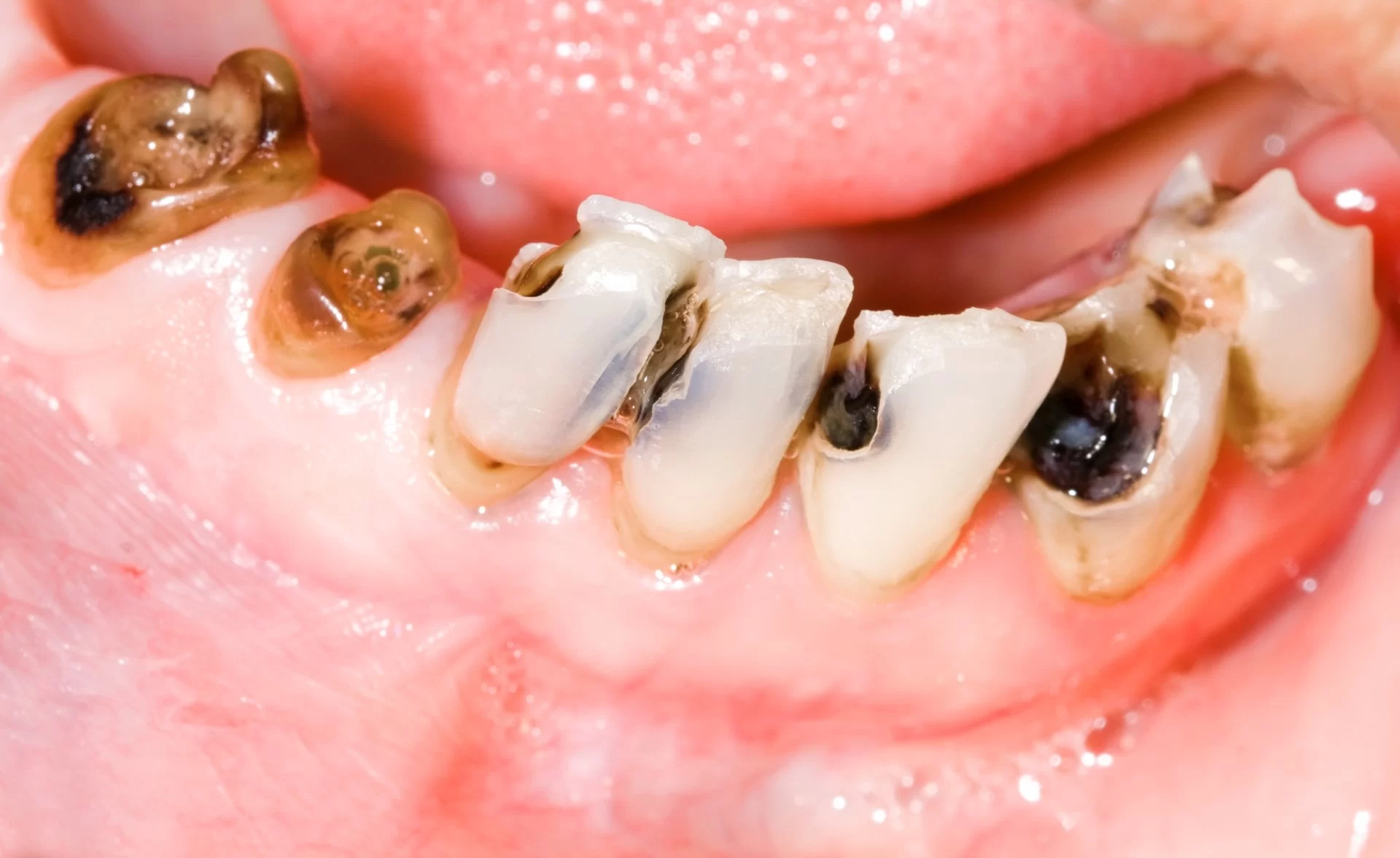
What Causes Tooth Enamel Erosion? Key Factors and How to Prevent It
Tooth enamel erosion is a growing concern in dental health, and it can have serious consequences if not addressed early. Enamel, the hard, outer layer of your teeth, is essential for protecting against decay and damage. Unfortunately, it’s also vulnerable to erosion, which can lead to sensitive teeth, cavities, and other oral health problems. In this article, we will explore what causes tooth enamel erosion, the common factors that contribute to it, and practical tips to help prevent it.
- What is Tooth Enamel Erosion?
- Common Causes of Tooth Enamel Erosion
- How to Prevent Tooth Enamel Erosion
- What to Do If Your Enamel Is Damaged
1. What is Tooth Enamel Erosion?
Tooth enamel erosion occurs when the outer layer of your teeth wears away over time due to various factors. Enamel is the hardest substance in the human body, but it is not invincible. Once enamel is eroded, it does not regenerate, which means the damage can lead to lasting problems. The erosion can cause your teeth to become more sensitive, prone to cavities, and weaker overall. Understanding the causes of enamel erosion is the first step in protecting your teeth.
2. Common Causes of Tooth Enamel Erosion
There are several reasons why tooth enamel may begin to erode. Let’s take a closer look at the most common causes:
- Acidic Foods and Drinks: Regularly consuming foods and beverages that are acidic, such as citrus fruits, soda, wine, and coffee, can wear down enamel over time. The acids in these items can erode the surface of your teeth, making them more susceptible to damage.
- Acid Reflux: Individuals with acid reflux or GERD (gastroesophageal reflux disease) may experience stomach acid reaching the mouth, which can also lead to enamel erosion. This condition can cause persistent enamel damage if not managed.
- Brushing Too Hard: While brushing is essential for good oral hygiene, brushing with excessive force can damage enamel. It’s important to use a soft-bristled toothbrush and gentle strokes to protect your teeth.
- Dry Mouth: Saliva plays a key role in neutralizing acids and protecting your enamel. A dry mouth, caused by medications or health conditions, can leave your teeth more vulnerable to erosion.
- Genetics: Some people are more prone to enamel erosion due to genetic factors. If you have naturally thin enamel, you may need to take extra precautions to prevent damage.
- Frequent Snacking: Constantly snacking, especially on sugary or acidic foods, can keep your teeth exposed to harmful substances for prolonged periods, accelerating enamel wear.
3. How to Prevent Tooth Enamel Erosion
While tooth enamel erosion can be caused by various factors, there are several steps you can take to minimize damage and protect your teeth. Here are some practical tips:
- Limit Acidic Foods and Drinks: Try to reduce your intake of acidic foods and beverages, such as citrus fruits, soda, and vinegar-based dressings. If you do consume them, rinse your mouth with water afterward to neutralize the acids.
- Drink Through a Straw: Drinking acidic beverages through a straw can help limit contact between the acid and your teeth, reducing the risk of enamel erosion.
- Wait to Brush After Eating: If you’ve consumed acidic foods or drinks, wait at least 30 minutes before brushing your teeth. Brushing immediately after can spread the acid and increase the risk of damage.
- Use a Soft Toothbrush: Always use a soft-bristled toothbrush to avoid damaging enamel. Additionally, brush gently and avoid pressing too hard on your teeth.
- Stay Hydrated: Drinking plenty of water throughout the day helps keep your mouth moist and aids in neutralizing acids. It also promotes saliva production, which is essential for enamel protection.
- Use Fluoride Toothpaste: Fluoride toothpaste helps strengthen enamel and can provide additional protection against erosion. It’s a good idea to use a fluoride mouthwash as well for added benefits.
- Consider a Night Guard: If you grind your teeth at night (bruxism), a night guard can help protect your enamel from excessive wear caused by grinding.
4. What to Do If Your Enamel Is Damaged
If you suspect that your tooth enamel has been eroded, it’s essential to seek advice from a dentist. There are treatments available to help restore some of the damage and protect your teeth from further harm. Some options include:
- Dental Bonding: If your enamel has been significantly worn down, dental bonding can help restore its appearance and protect the underlying tooth structure.
- Veneers: For more severe cases of enamel erosion, porcelain veneers may be recommended to cover the affected teeth and restore their function and aesthetics.
- Fluoride Treatments: In some cases, your dentist may apply fluoride treatments to strengthen weakened enamel and prevent further erosion.
By understanding what causes tooth enamel erosion and implementing preventive measures, you can significantly reduce the risk of enamel damage and keep your teeth healthy for years to come.
If you're looking for more information on preventing tooth enamel erosion or want to explore products that can help protect your teeth, visit Dentistry Toothtruth for expert advice and recommendations.







 The Smile Institute Advanced Dentistry & Orthodontics4.0 (256 review)
The Smile Institute Advanced Dentistry & Orthodontics4.0 (256 review) Dr. David Scharf - Long Island Periodontist & Dental Implants4.0 (234 review)
Dr. David Scharf - Long Island Periodontist & Dental Implants4.0 (234 review) Pope Family Dentistry5.0 (7 review)
Pope Family Dentistry5.0 (7 review) Braces Braces4.0 (202 review)
Braces Braces4.0 (202 review) Dental Playground3.0 (35 review)
Dental Playground3.0 (35 review) Dr. Braden H. Stoltenberg, DDS4.0 (11 review)
Dr. Braden H. Stoltenberg, DDS4.0 (11 review) The Importance of Oral Health Education During Pregnancy for a Healthy Pregnancy
The Importance of Oral Health Education During Pregnancy for a Healthy Pregnancy Best Tips for Brushing Your Teeth Properly for Healthy Gums: Essential Techniques for Oral Health
Best Tips for Brushing Your Teeth Properly for Healthy Gums: Essential Techniques for Oral Health Why Skipping Dental Checkups Can Lead to Bigger Oral Health Problems
Why Skipping Dental Checkups Can Lead to Bigger Oral Health Problems Advantages of Porcelain Dental Restorations
Advantages of Porcelain Dental Restorations How Can Diabetes Cause Tooth and Gum Problems? Preventing and Managing Oral Health Issues
How Can Diabetes Cause Tooth and Gum Problems? Preventing and Managing Oral Health Issues Healthy Habits for Promoting Good Oral Health and Hygiene: Tips for a Healthy Smile
Healthy Habits for Promoting Good Oral Health and Hygiene: Tips for a Healthy Smile